The upheavals in the Eastern Bloc changed people’s vision of what the European Community could become. At the Strasbourg European Council (8 and 9 December 1989), the European Parliament President put forward a 10-point plan which included holding a second intergovernmental conference (IGC) on political union alongside the one already scheduled to discuss the establishment of Economic and Monetary Union.
“Now, without any fear, we must unite the states, preserving, of course, the city, the county, the region and the nation, but adding the European dimension. It is by no means a question of subtracting, but of adding. We do not join together to be poorer or less powerful, but to improve our well-being and to share the exercise of power.”
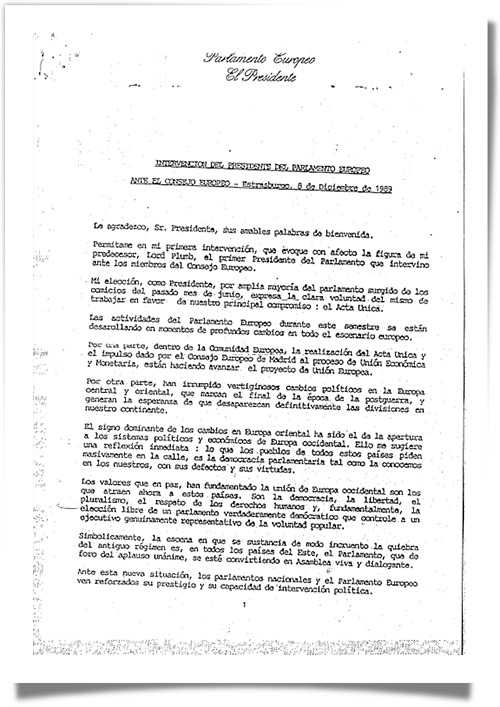
Enrique Barón Crespo held the view that this constitutional reform process should be undertaken in a European democratic spirit, rather than remaining the prerogative of national governments. He therefore proposed that a Preparatory Interinstitutional Conference (PIC) be held, as well as a meeting between the national parliaments and the European Parliament. Enrique Barón Crespo was adamant about the need for dialogue between the European Parliament and the Council, as he felt that, 10 years after the first direct elections, the European Parliament should no longer be a mere spectator when major political decisions were taken.
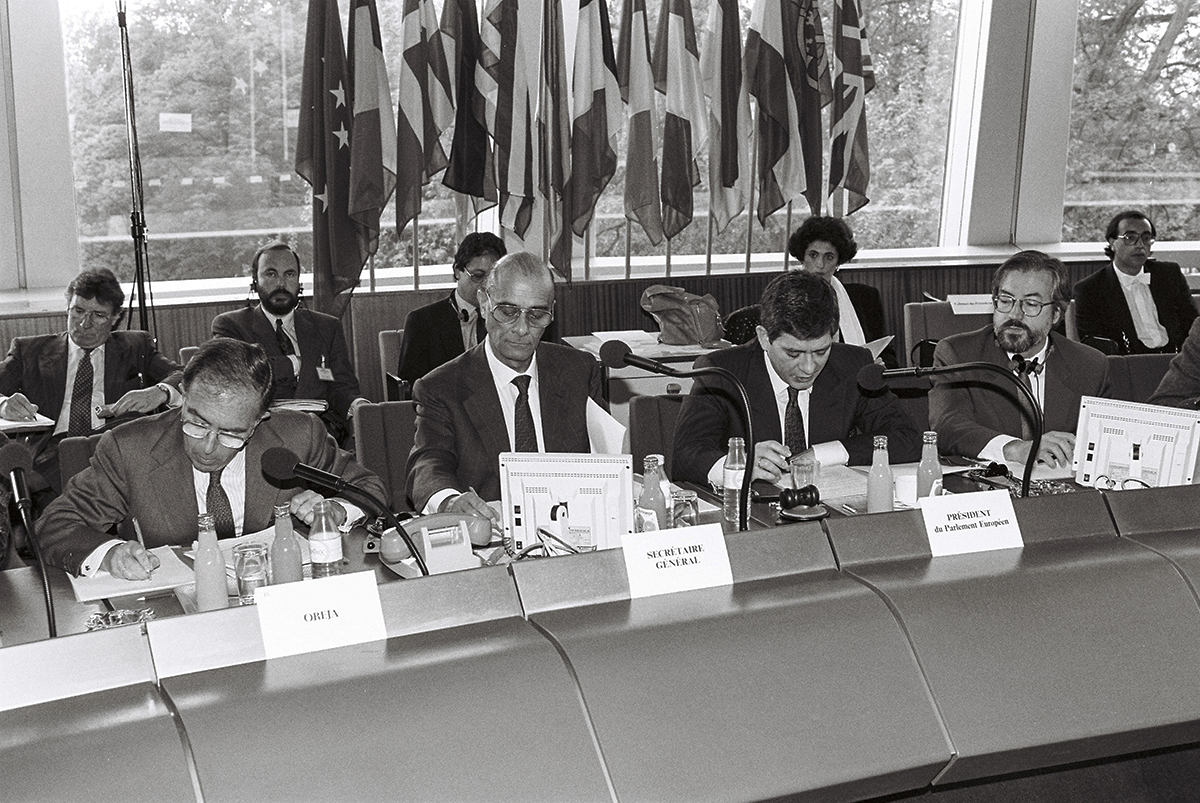 Intergovernmental Conference. L-R: Marcelino Oreja y Aguirre, Enrico Vinci, Enrique Barón Crespo © European Communities, 1991
Intergovernmental Conference. L-R: Marcelino Oreja y Aguirre, Enrico Vinci, Enrique Barón Crespo © European Communities, 1991
Both President Mitterrand and Chancellor Kohl were in favour of the political union the European Parliament wanted and they called for an Intergovernmental Conference on that subject.
“The conference will examine ways whether and how the subjects presently covered through intergovernmental cooperation (...) could be brought into the ambit of the new Treaty of the Union”
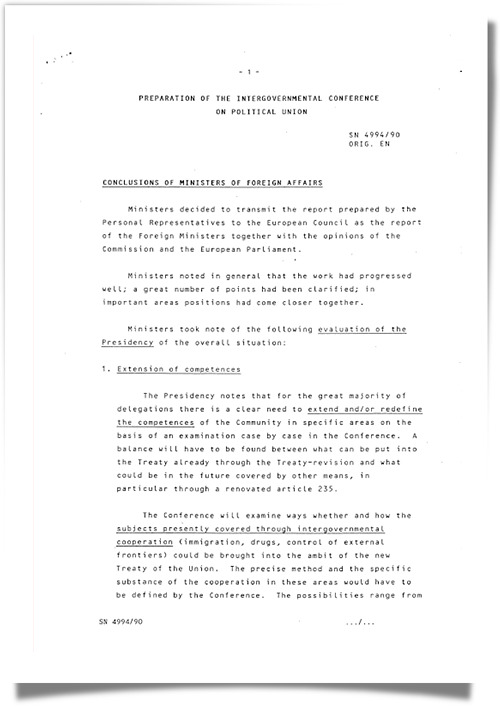 Note: Preparation of the Intergovernmental Conference on Political Union (Download the document here - PDF)
Note: Preparation of the Intergovernmental Conference on Political Union (Download the document here - PDF)
Dialogue with national parliaments
Enrique Barón Crespo’s term in office as President was also marked by an event that he himself set in motion, namely the first Conference of Parliaments of the European Community with the European Parliament. This conference was held to discuss the future of the European Union, but also reflected the closer relations with the national parliaments ushered in by the Single European Act.
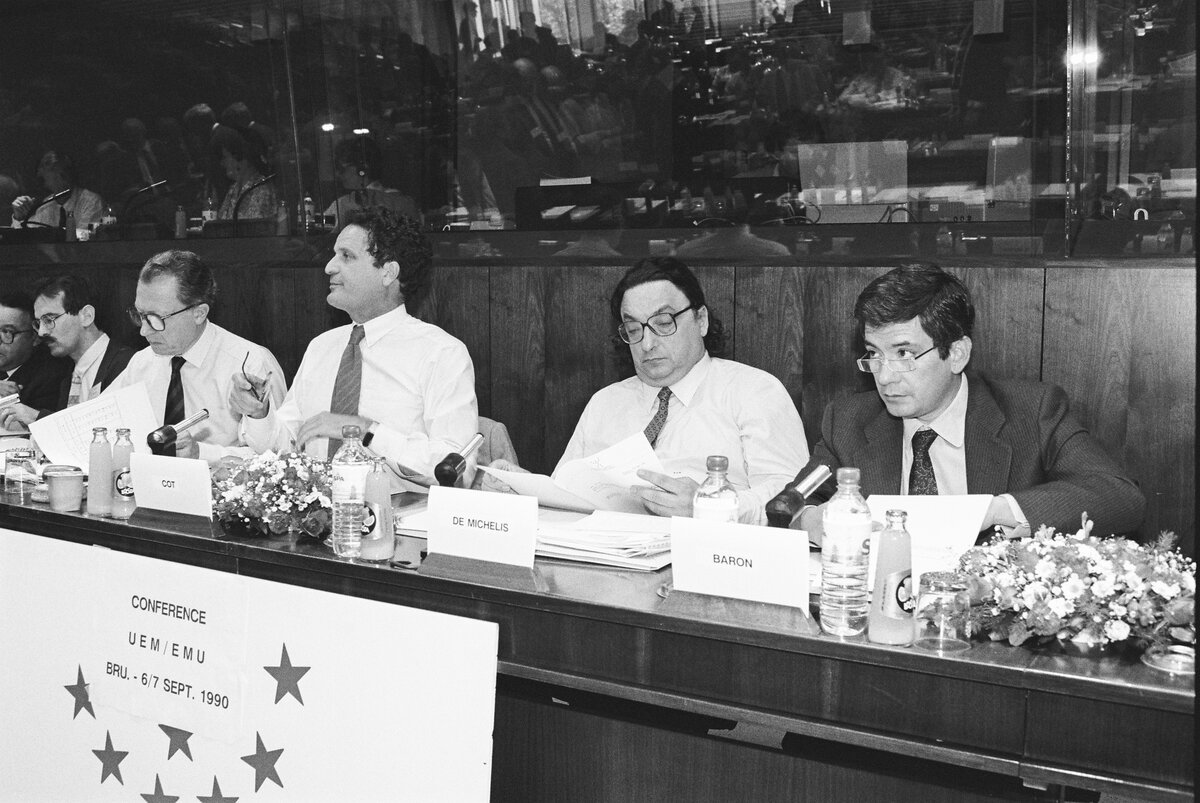 Economic and Monetary Union (EMU) Conference in Brussels on 6 September 1990. L-R: President of the European Commission Jacques Delors, Jean-Pierre Cot, Gianni De Michelis, President of the European Parliament Enrique Barón Crespo © European Communities, 1990 - Source: European Parliament
Economic and Monetary Union (EMU) Conference in Brussels on 6 September 1990. L-R: President of the European Commission Jacques Delors, Jean-Pierre Cot, Gianni De Michelis, President of the European Parliament Enrique Barón Crespo © European Communities, 1990 - Source: European Parliament
The aim of this extraordinary meeting was to draw up a blueprint for the future development of the European Union and to canvass the views of parliamentarians on this subject. The meeting was held at the Montecitorio Palace in Rome from 27 to 30 November 1990.
“The time has come for European Political Cooperation to move from being an intergovernmental mechanism to becoming a Community policy. The establishment of ever-closer links with other European countries will entail the necessary common action at all levels and in all areas of competence.”
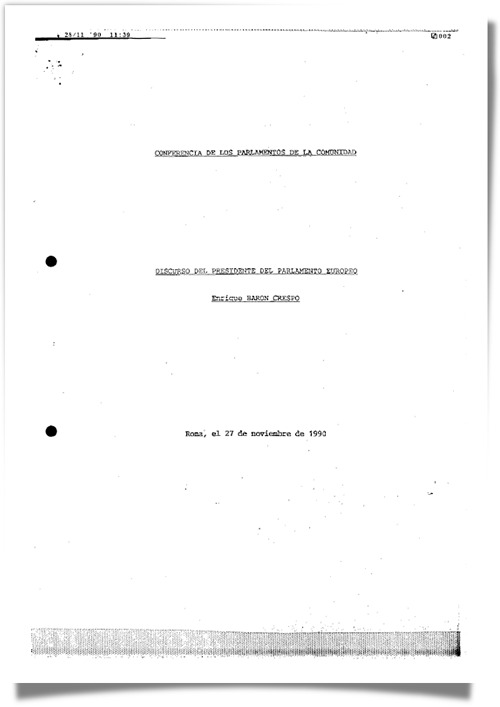
In preparatory work, delegations were able to compare standpoints and share experiences on Community matters. The European Parliament itself adopted no fewer than 10 resolutions prior to the ‘Assizes’, in particular on preparations for the Rome Conference, on the Intergovernmental Conferences in the context of the European Parliament’s strategy on the European Union, on the subsidiarity principle, on the draft Constitution on European Union and, lastly, on Economic and Monetary Union.
The Final Declaration of the Assizes, adopted by 150 votes to 13, contained a clear commitment to the further development of the European Union and thus sent a strong message to the Council with the subsequent ratification of the Treaty in mind. An extract from the Declaration reads that the Conference:
13. Is in favour of enhanced cooperation between the national parliaments and the European Parliament by means of regular meetings of the specialised committees, exchanges of information and the organisation of Conferences of the Parliaments of the European Community when the discussion of essential guidelines for the Community was required, particularly when Intergovernmental Conferences were being held
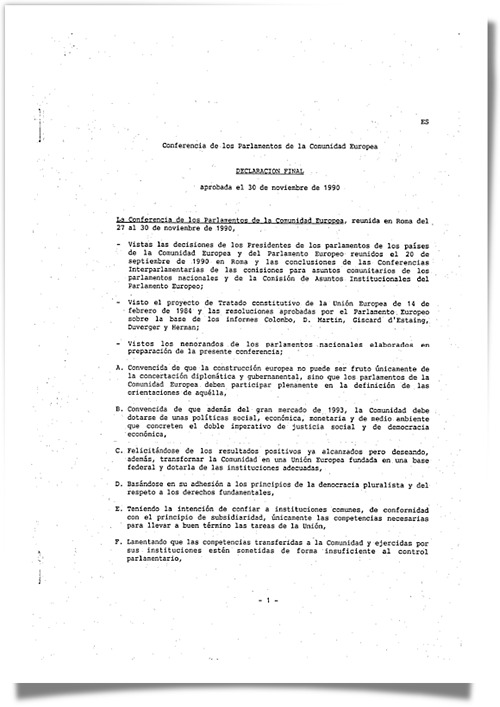
Final Declaration of the Conference of European Parliaments in Rome on 30 November 1990 (Download the Declaration here in Spanish - PDF)
Maastricht European Council
Enrique Barón Crespo’s speech to the Maastricht European Council on 9 December 1991 is the final significant example of his determination to enhance democratic legitimacy in relations between the Community and the Member States, as well as within the Community institutions themselves, during his Presidency. Enrique Barón Crespo himself felt this speech was the most moving moment of his whole term of office. It sent out a strong political message, and on a more personal note, it was his last speech as President of the European Parliament.
He stressed that the European Union should develop along federal lines, based on a single Treaty that would confer twofold democratic legitimacy:
“Our premise is simple: relations between the European Parliament and the Council should be based on legislative codecision. This is the cornerstone of the European Union; EMU and political union involve aspects of sovereignty that are so crucial they can only be pooled if it is accepted that the European Parliament is granted those powers which, in any democratic system, are a parliament’s by right [...] The European Parliament does not wish to be witness to a Community that has run out of steam. It wants to be one of the protagonists in a forward-looking Europe of the Twelve. For us, codecision means taking decisions jointly.”
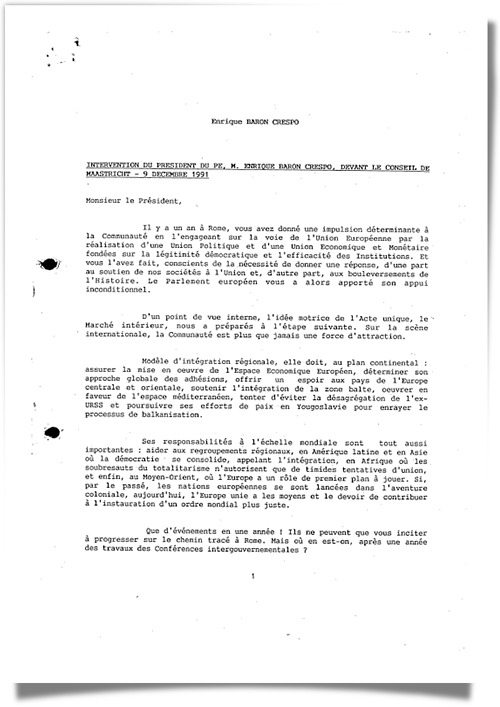
Speech by the President to the Maastricht European Council, December 1991 (Download the document here in French, Italian, Dutch and Portuguese - PDF)
The Treaty of Maastricht (TEU) was signed on 7 February 1992 by all the Member States and candidate countries, and came into force on 1 November 1993.
